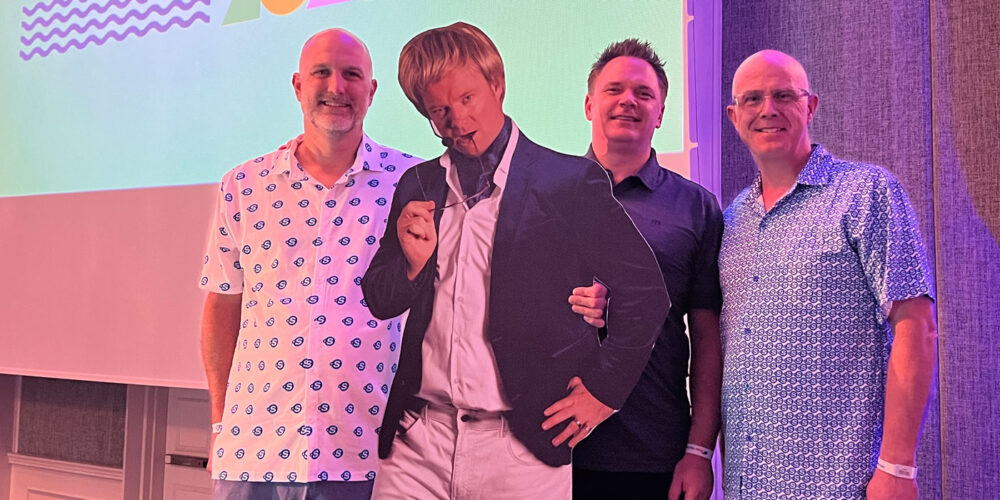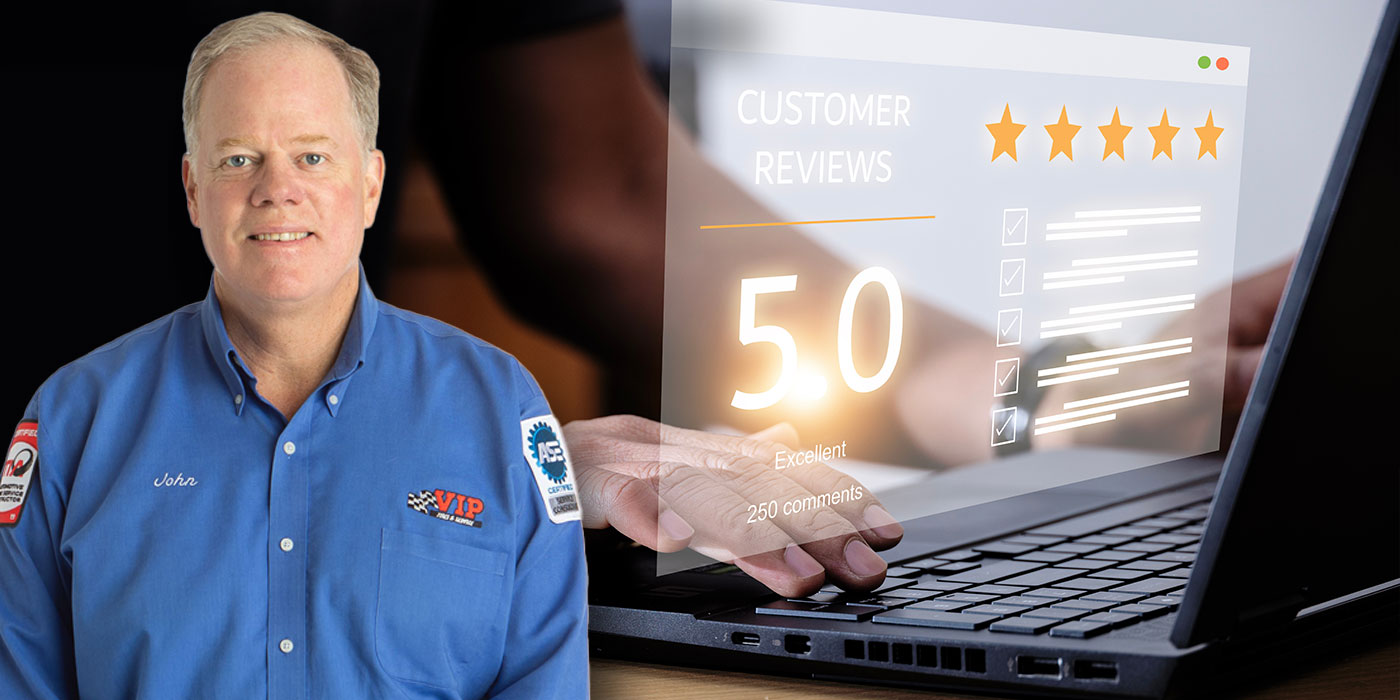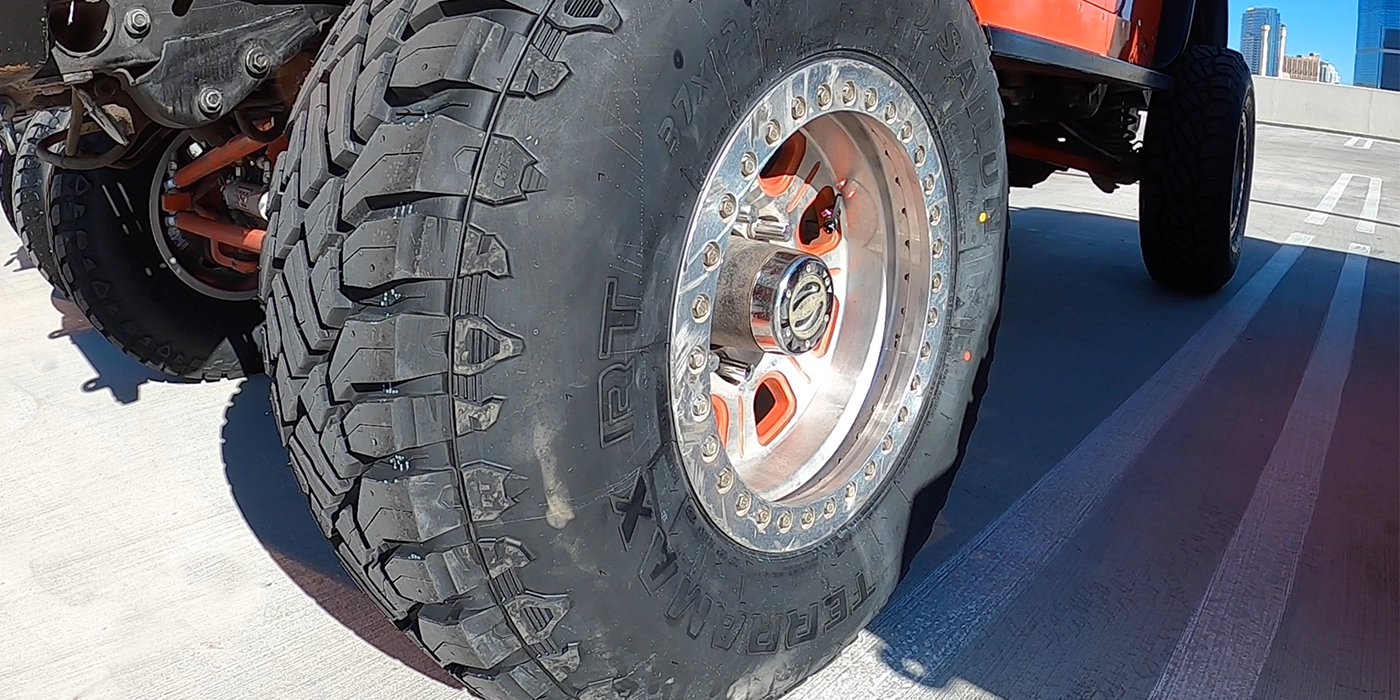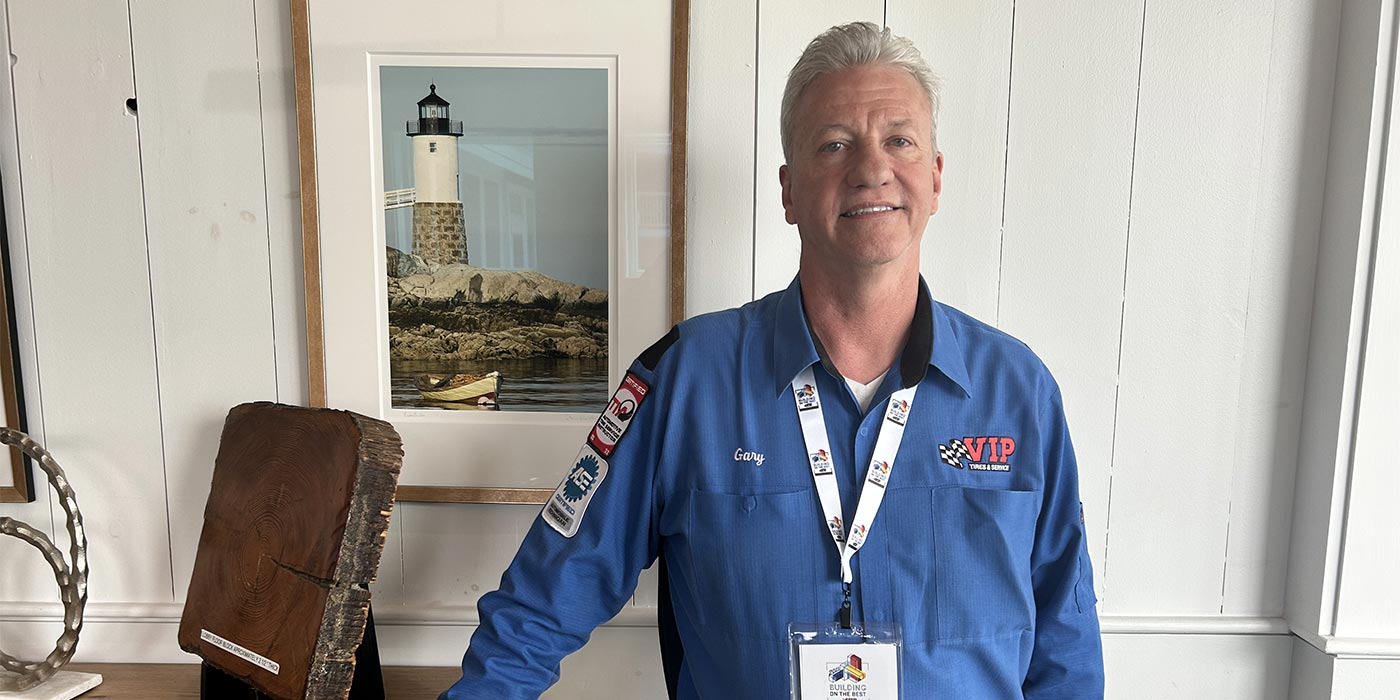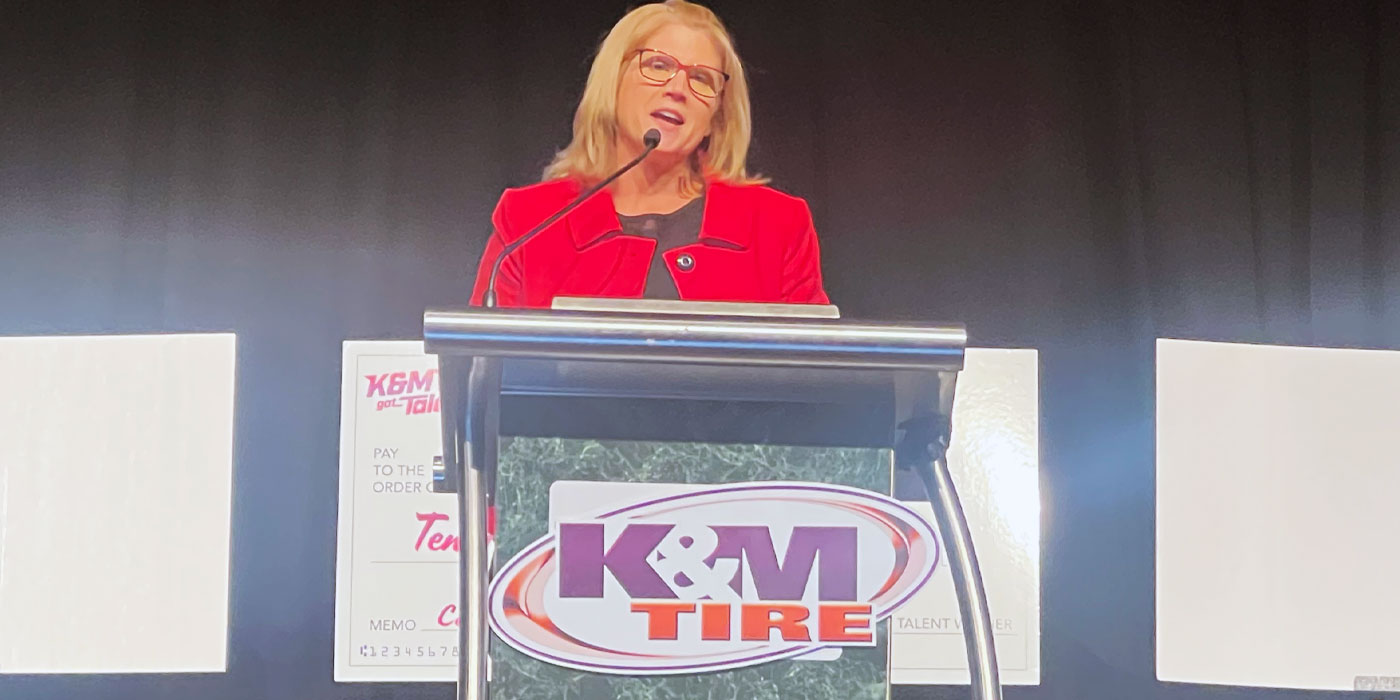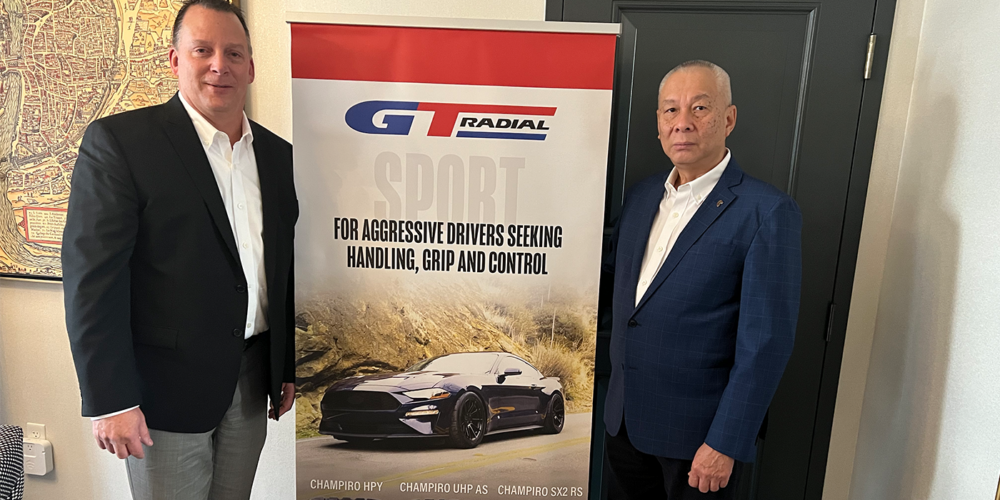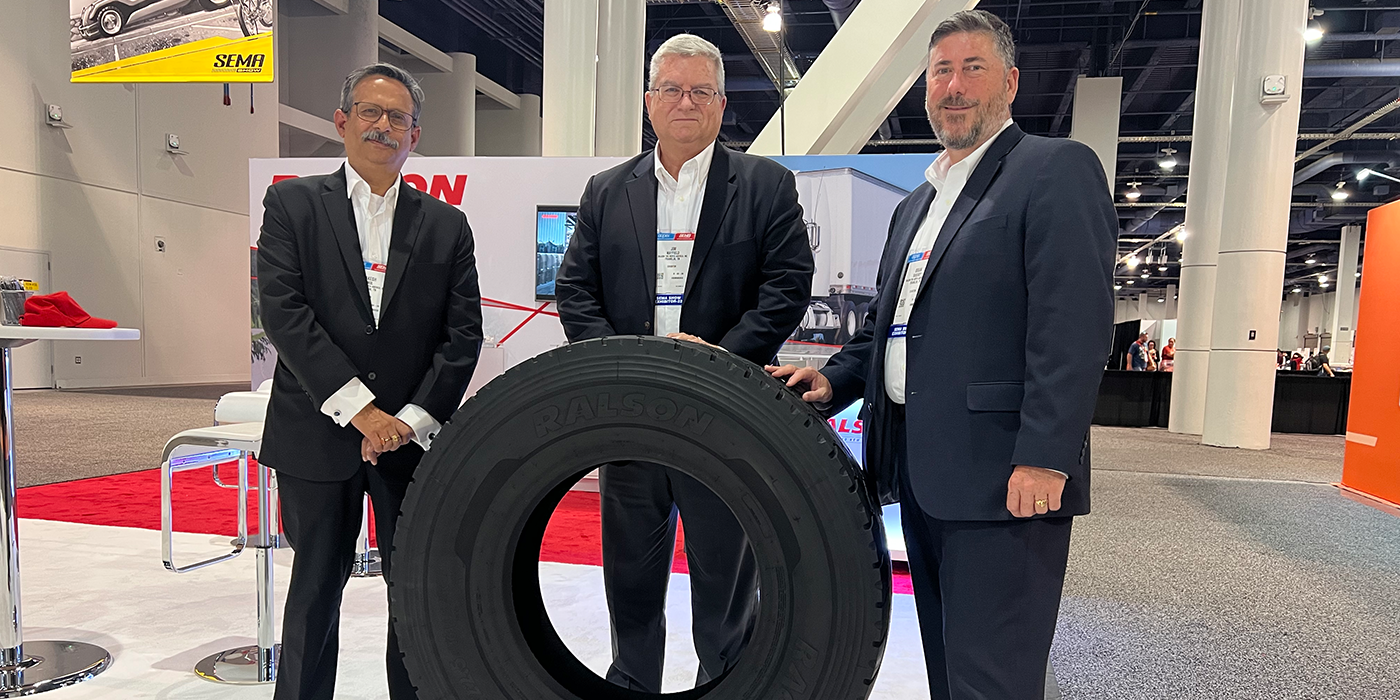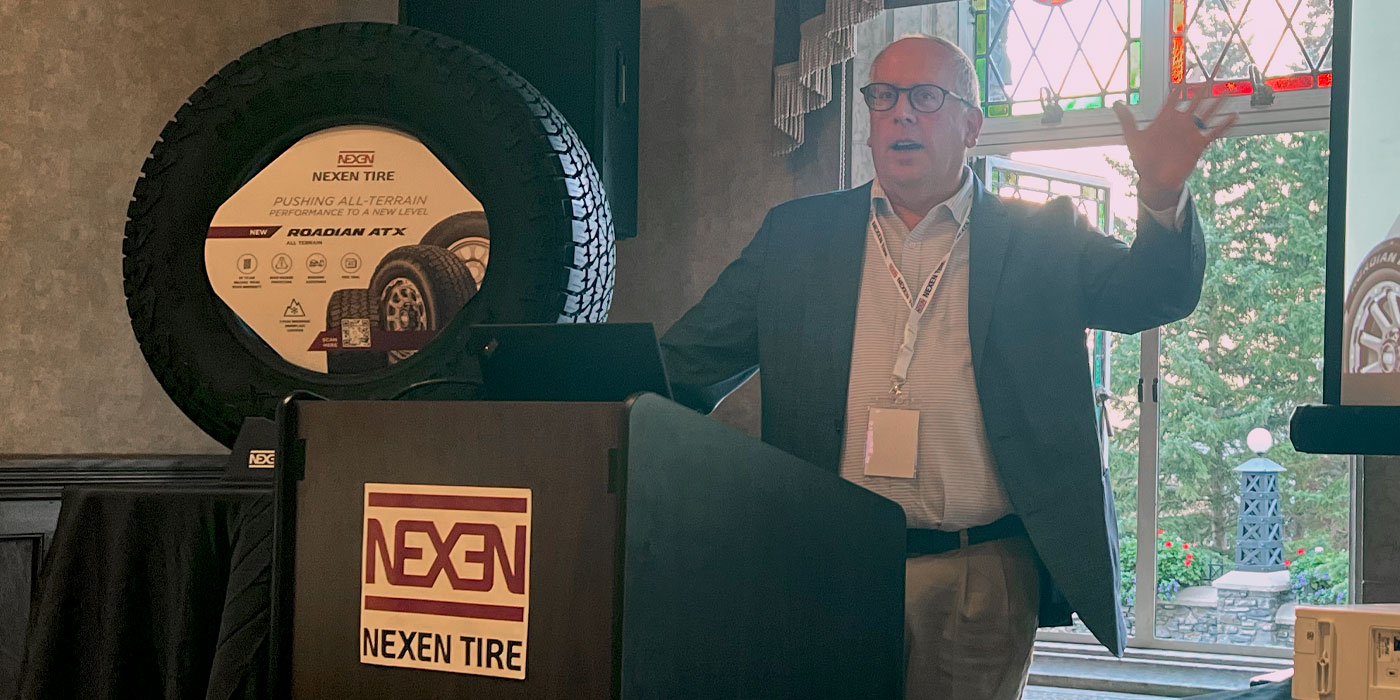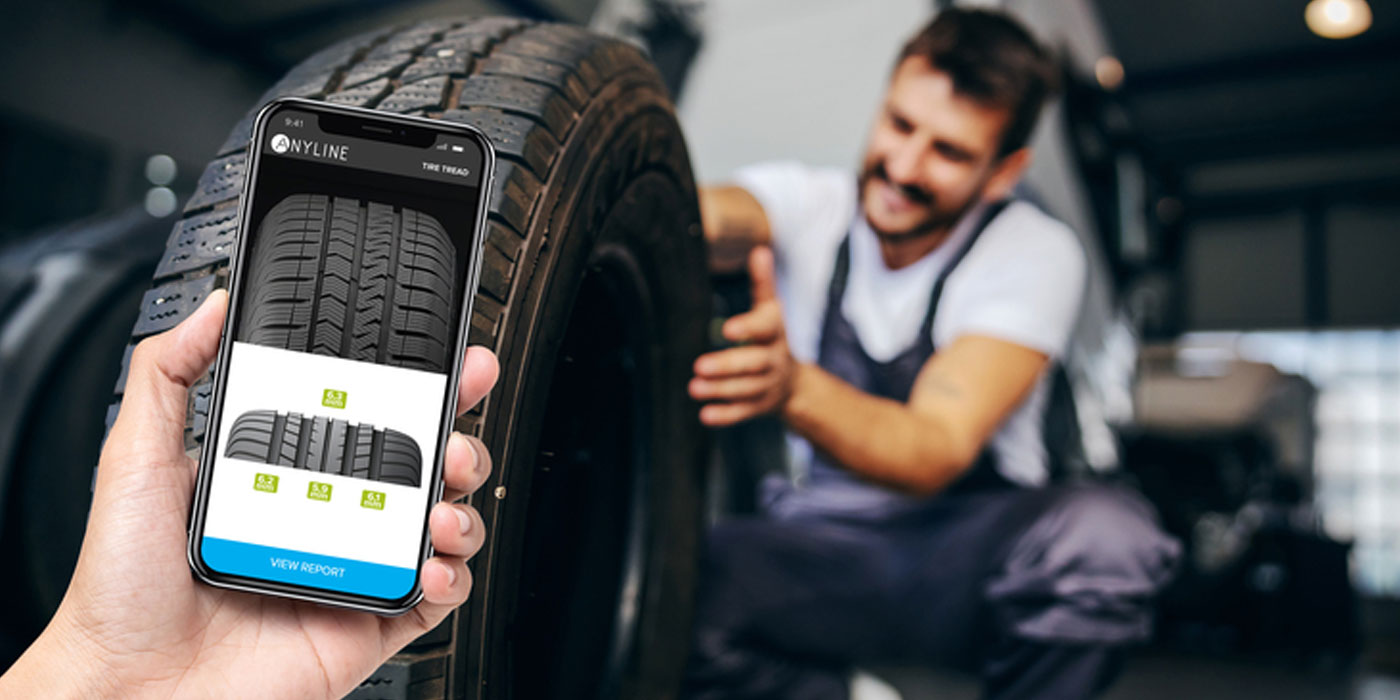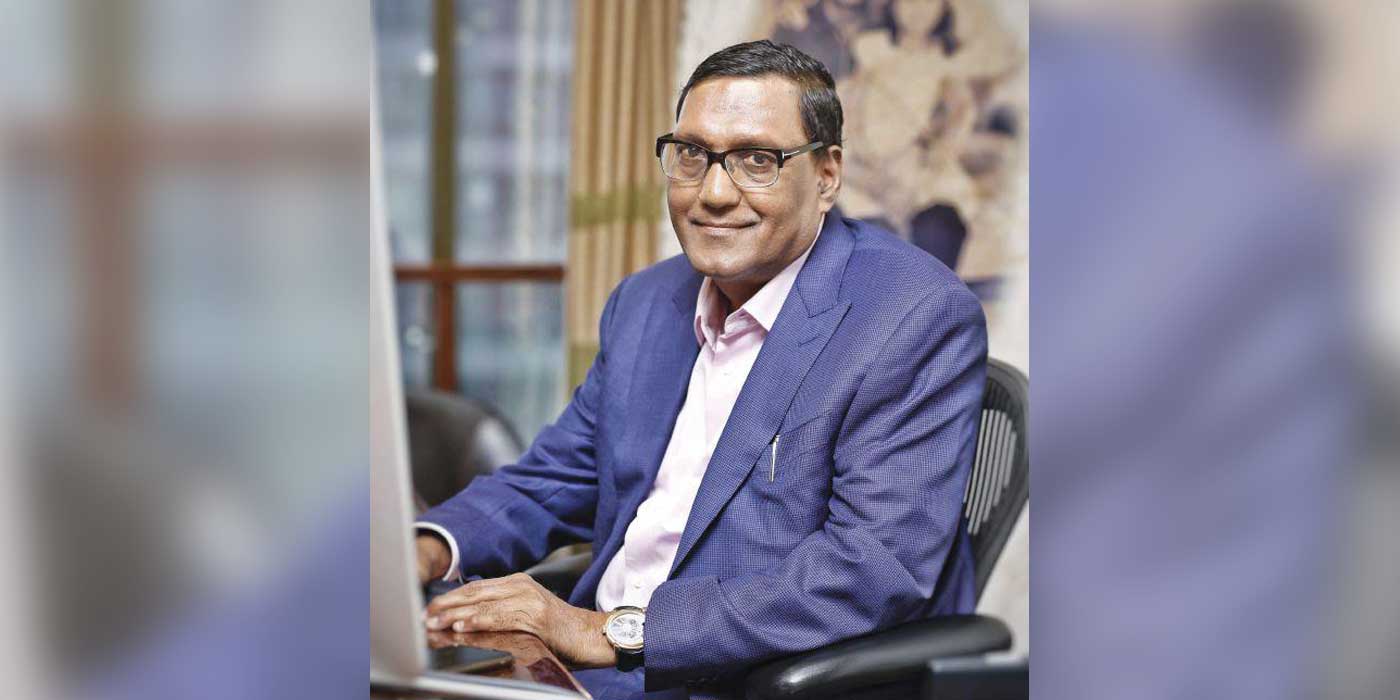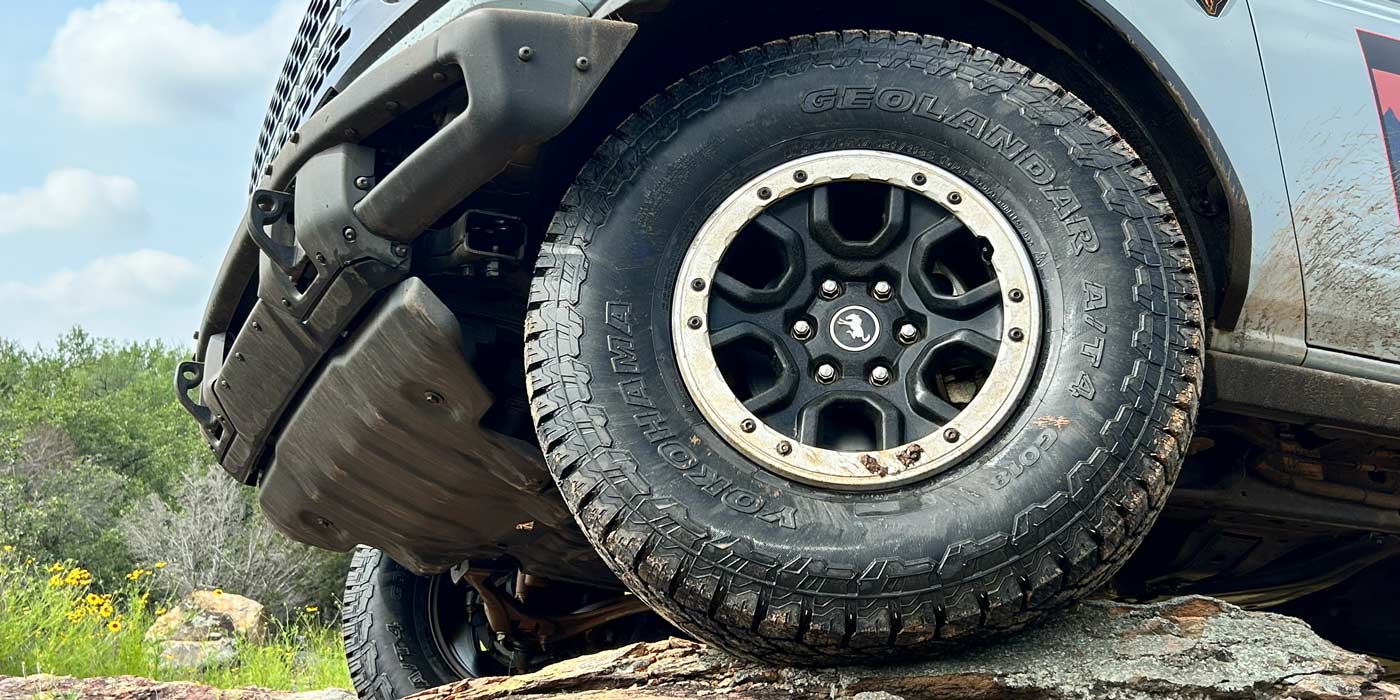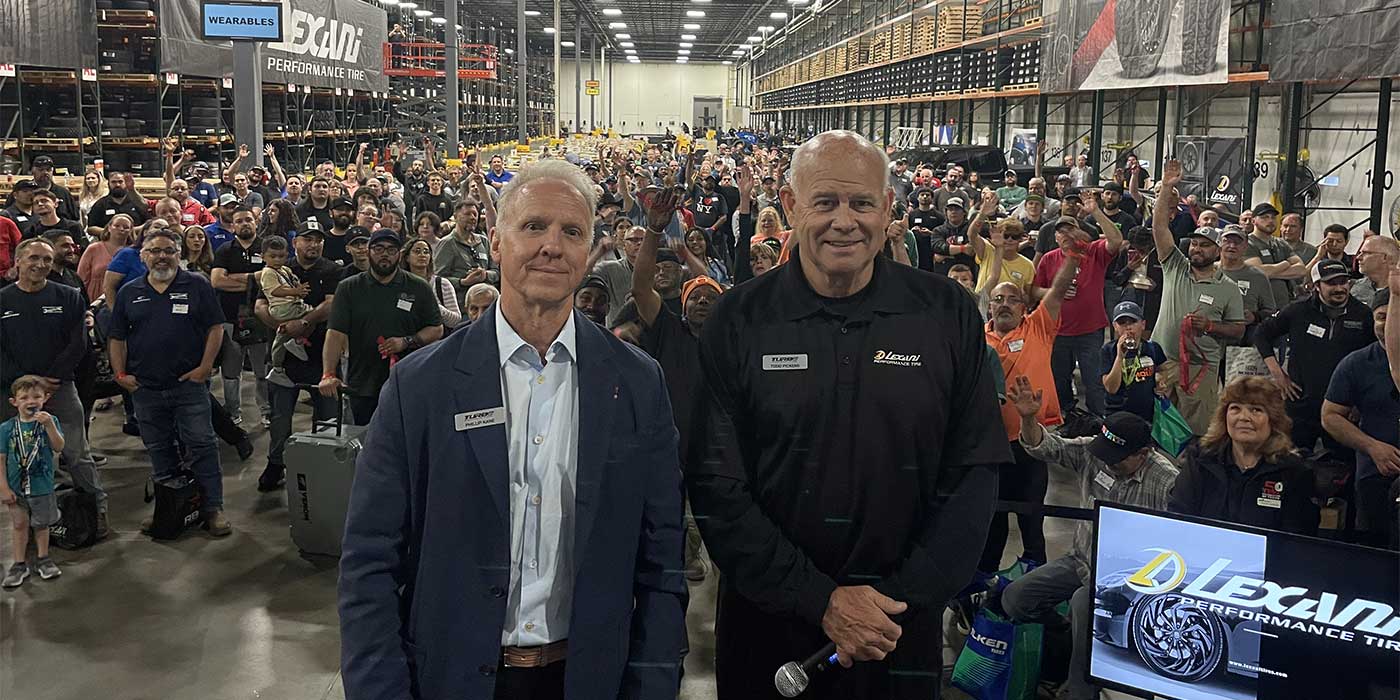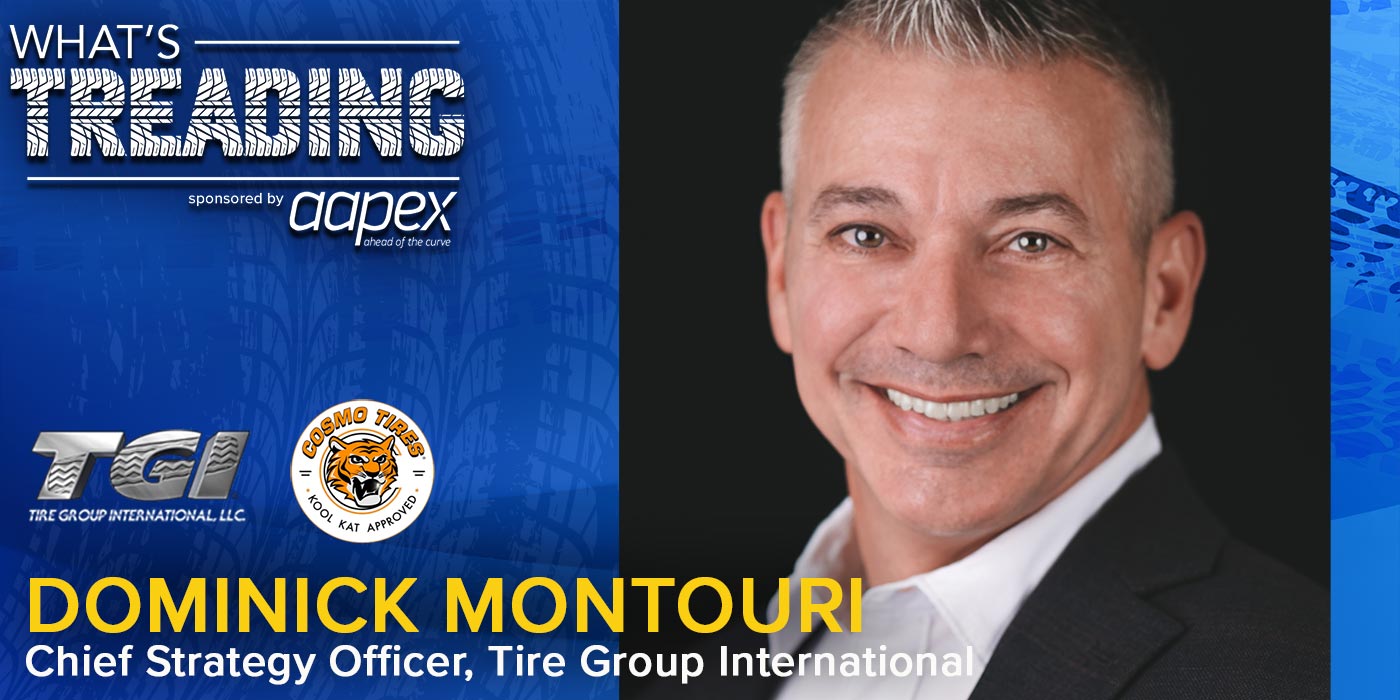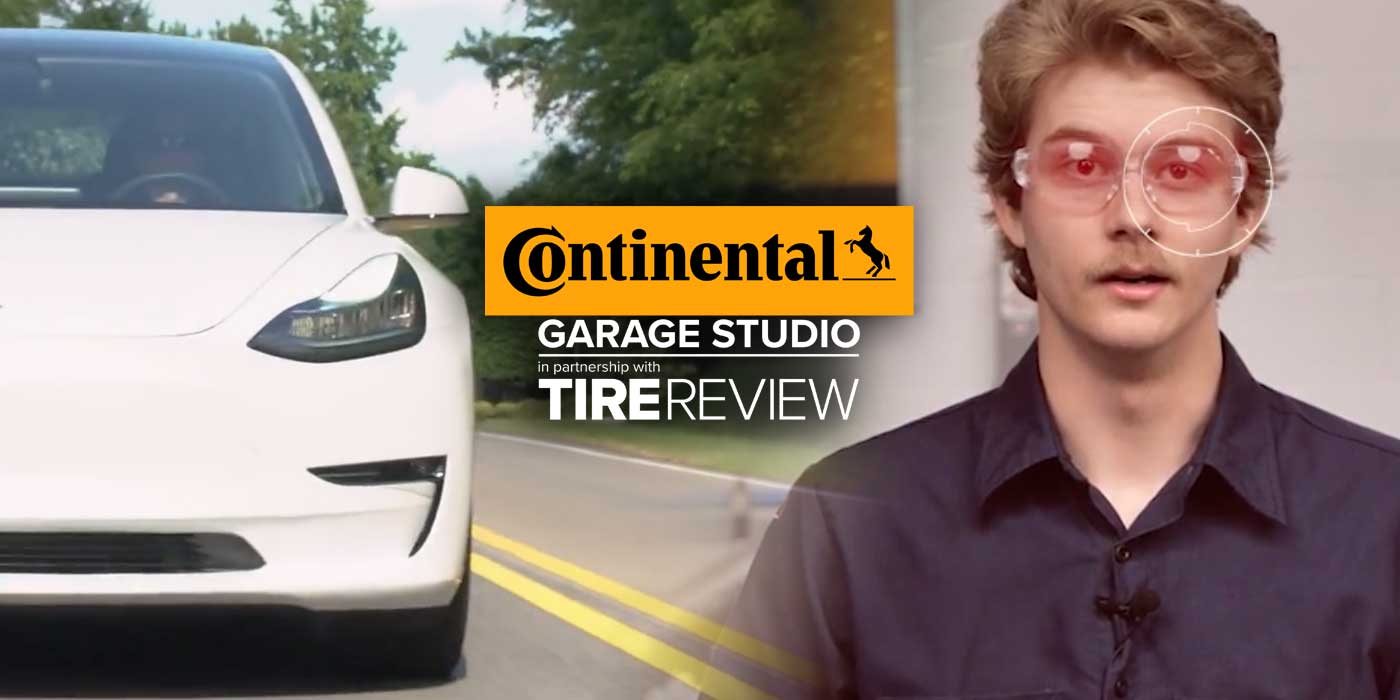If you’re on a ship sailing the high seas and get caught in a storm, you have two options. The first is to stay put, batten down the hatches and retreat all crew members to the lower decks in hopes that this will all blow over soon. The second is to rev the engines and sail unapologetically headfirst toward the darkened waters in hopes that you’ll escape to the other side faster and with more experience than your competition.
Your tire dealership is that ship. Unfavorable economic forecasts, seemingly unending supply chain kinks, big box competition breathing down your neck, ever-changing technology and the omnipresent lack of time are all a part of your storm. So, what’s your move?
If you’re part of the Point S family of dealerships, your directive is to start your engines. And you know what? It’s working.
Point S USA is investing more in its personnel and marketing, and last year developed a four-pronged approach to support its members and grow Point S membership. The result: Sales in 2022 were up 10% over 2021 and net income was also up 10% that year, allowing Point S USA to return $7.7 million back to its members – the most ever for the organization. The group added 28 stores last year and has high hopes for adding another 225 within the next five years, with representation in all 50 states.
Believe it or not, “high hopes” may be putting it lightly. Point S’s leadership believes they’re going to hit this one out of the park. So much so, in fact, that they exposed their ambitions to a packed house during the group’s 2023 Owner’s Meeting held in Puerto Rico.
To get the scoop on how the group is thriving during times of adversity, as well as how it plans to hit its lofty goal, Tire Review sat down during this year’s annual meeting with Walter Lybeck, Point S CEO, Chris Cornelius, Point S chairman of the board, and Clint Young, COO.
David Sickels, Senior Editor, Tire Review: Congratulations on 40 years in business. That’s a big deal. What do you think a business needs to do to achieve that kind of longevity?
Walter Lybeck, CEO: I think it’s got to have a very, very strong DNA and very strong core value. The core value for us is we exist for the success of our members as a group, which drives the cooperative side, but it doesn’t exist and it won’t exist for long if the members don’t have the connections, which is why meetings like this are so important. I think if we keep focused on service for them when they’re here, they’ll have those connections.
What would you say has been one of your biggest challenges as a company in these past 40 years?
Chris Cornelius, chairman of the board: Well, when you’re working with the independent dealer, the independent dealer traditionally has his head down being the accountant, being the marketer, being the tire changer, being the janitor and everything else. And the best story is told by the dealer, as far as the value of the proposition that Point S/Tire Factory brings, and they are the best referral. You can put your guys out on the ground, Clint [Young] can send his team out to recruit and he’ll probably get one out of every 10 that they talk to because their head’s down being so busy. But if we can get a dealer to refer a friend or an associate in the same space, the close rate is 90% or 95%. So, what we need to do is enable and encourage our members to look up, because here’s where the value comes.
The value comes as we continue to grow our purchasing power, but more importantly for us, what we’re trying to teach them is to save their brothers and sisters because there’s a huge consolidation taking place. And if Clint’s team can get in and show the specifics, all the dealer has to do is say: “Listen [independent tire dealer friend], this is the best thing that ever happened to us. And I’m going to refer you to Clint, and when Clint’s team starts to talk to you, can I show up and be with you?” When they do that, there are two things that happen there. First, it’s a great referral. Second, there’s an instant in-house mentor.
What we’re trying to do now is teach our membership the best practices to stop working in the business and start running the business. There’s a difference. And so, Clint and Walter, this past year, brought on Tony [O’Billovich], who is coaching our team members on how to quit working in the business and how to begin to run the business. Once they begin to run, then they can go out and be referrals and mentors. So we’re now seeing the fruits of the network that these two individuals and their team have put together.
Clint Young, COO: Yeah. The challenges over the last four years have really been about communication. The COVID times were tough. We didn’t get to see each other, obviously, and everything became virtual. In connecting with the dealers, we got hamstrung for a few years because we weren’t able to come together. When communication is difficult, it’s hard to stay connected. It’s hard to see value. Doing things to emphasize that or overemphasize that these past four years has been a challenge, but I think we’ve done a pretty good job of it.
You’ve gained 28 stores just in the past year, even when it’s difficult for businesses to thrive in a lot of cases. How do you explain that?
Walter Lybeck: I think there are a lot of facets. If you think about a ship in a storm, you don’t shut the engines down. You run them and you go right into the storm and you ride through it and you keep your mission, you keep your core values and you keep your goals, and you keep working. And when it gets hard, you work harder. Sometimes you’re up way more hours than you should be, but you’ve got to hold onto that thing like it matters to you. That’s how we’ve done it in the last few years.
Clint Young: With the momentum of what we’ve started to achieve, it’s easier to attract dealers to come and be part of Point S with the size that we’ve become because they want to be part of a winning team. I mean, we’re winning. The industry has lagged over the past five years. We have not. We’ve continued to grow. And people want to win. So I think there’s great confidence in joining an organization that has proven a track record of winning, and that has a lot to do with our growth.
Chris Cornelius: Regarding our bylaws, I think in the past we were somewhat protectionist as an organization. And Walter and Clint have come to the board and said, “Listen, we have got to take the handcuffs off. If somebody wants to slow dance before they do a fast dance, then let’s give them the ability to slow dance.” I think that that’s assisted for those that are intrepid to just get a taste. And once they drink the water, we don’t lose.
Clint Young: Chris is referring to one of our new programs, which is called an Associated Dealer Program.
Walter Lybeck: That’s what that’s for. It’s the training wheel option. What it does is it removes the handcuffs that they feel if they’re trying to rebrand. Getting handcuffed is a scary thing. You don’t want to franchise yourself or lock yourself in. You want the flexibility to do your freedom. But once the handcuffs are off, it’s like a “walkaway close.” Sure, you can be non-branded, but you’re going to want this.
Chris Cornelius: You want them to taste the candy. I mean, [our members], they’re not faking it. This is real stuff, and it’s part of our DNA. It’s who we are. We live it, we eat it, we drink it.
They’re believers. I’m telling you, they’re believers. Our welcome reception, our events, the engagement, and just watching our membership, [it proves that]. I mean, I don’t see employee huddles. There’s a dialogue. We’re watching their team members out there engaged and aware. They know what they’re doing. It’s refreshing.
We have momentum, as Clint and Walter just stated. The 500 in 50 states in five years – to them, right now that might seem like a huge hill to climb. I’m not worried about it.
Really?
Chris Cornelius: No, I’m not. I’m not at all worried about it. In fact, I was sitting next to someone last night and he says, “I’ll cover 10 states. What are you covering?” And I went, “Well, one of them’s Hawaii for you.”
Speaking of this 500, 50, 5 goal – how did you come up with that specific plan? Why isn’t it 400 stores in four years, for example?
Walter Lybeck: I’m an accountant by nature, so I’m always conservative. I don’t like to throw things out there that very often, but I felt like we needed a coming-out party. We needed to share with our members where we are going and why. My presentation yesterday was about the why. Why do we need to do the things we need to do? Unless you explain the why they don’t understand the why. Why are you growing stores again? I don’t really quite understand it.
And so, we need to put a long-term goal out there that we could get our members excited about. [Tell them] that we have a vision that’s more than just: We’ll grab some tires and ship them to you guys. We want this thing to be much, much bigger than what you see today, and that’s going to be hard work. So let’s put a charge out there. Let’s put out a long-term ambition.
If you don’t have that goal and you don’t say it out loud, you don’t have a direction. They need to know where to go.
How is your “No Trouble to Double” referral program going? Are you getting a lot of reception?
Editor’s Note: No Trouble to Double, a program designed for Point S tire dealers who own only one or two stores, provides resources like property acquisition assistance and financial support to help open additional stores.
Clint Young: Yeah, we are. No Trouble to Double accounted for six of our 28 new stores. Twelve of our 28 were related to the Associated Dealer Program. Our 28 stores that came in this year was a record that was predominantly driven by our growth initiatives, which we only rolled out in August, and it’s been wildly successful. We’ve promoted it quite a bit, so there’s been a good deal of communication around it.
Walter Lybeck: What you’re hearing from me and from Clint is really a purposeful vision. We had these pieces, we had this direction, we knew what our mission was, but we didn’t have the vision clearly laid out and formulated. Clint and his team actually created those four initiatives, [member retention, no trouble to double, referrals and an associate dealer program] – they came with those options in our strategic planning and we were talking about it and we were like, “Duh, this makes total sense, and we should have a formal growth plan in all these areas.” It suddenly shined a light on the 15% or 20% of areas where we had holes. So we added things to those initiatives based on that clarity of thought.
I want to mention the sites in Brazil that Point S recently opened. What impact does that have on your expansion in the US, if at all?
Walter Lybeck: I’ve met them. They’re great people. They’ve got great ambitions. Their adding two stores in Brazil won’t affect us directly. It becomes part of the bigger growth of Point S. Like 500, 50, 5 in the US, they have similar initiatives internationally. They’re now up to 6,000 stores internationally. That needs to be 8,000 or 10,000 or 20,000. What does that number need to be before you have relevance? That international growth becomes the focus for us to have a vision for growth as well.
What does a new store in New York really do for Chris? There’s the camaraderie, you get connections occasionally, but it doesn’t help Chris run his business necessarily. Brazil isn’t going to help us run our business. Brazil is part of the connectivity worldwide of everything because I think Point S is almost a humanity goal, because there are multiple countries and multiple stores. This is about crossing borders between Morocco and Portugal and Europe and Israel and China, maybe Russia someday. It’s people doing the same thing around the world.
Chris Cornelius: That’s it. It brings relevance. But you have to remember, at the very core of it all are independent dealers. We don’t bring on chains. That’s not who we are. We’re independent dealers. Think about the core of what many of these nations were started on. It’s independent families. It’s independent companies. We saw a shift to the big box, to the superstores, but what are we seeing now? We’re going back to the independent, because the independent can always do what the big box stores can’t. That’s our 13th donut, [something extra you can’t find anywhere else].
What do you think is one of the biggest challenges today for the independent dealer?
Walter Lybeck: We’ll have Chris answer that from a viewpoint of an independent.
Chris Cornelius: Well, we have an aging population. We spoke about it earlier, that independents have their heads down and they’re working, not running, and there’s a failure to plan in succession. So we go from, “This is something I need to do in the future,” to all of a sudden today it’s an emergency. When you have equity groups that have a large amount of money on the sideline, they can come in saying, “I’m going to pay you three times.” Whatever. Gone.
But we’re teaching them to plan. Part of the initiatives that Clint brought to Walter and the team were initiatives that addressed that, that allowed the referral. The backbone of who they [independent tire dealers] are are good workers, and unfortunately, that is their weakness. They need to run their businesses and plan the succession. I planned mine a little too early – (laughs) – my kids are already like, “Dad, you’re 56. You’re out.”
Walter Lybeck: I would add that independent tire dealers are running their stores and they have visibility to their customers. They know their customers better than anybody. They know their town better than anybody, better than I do. What they don’t have is visibility to the bumps in the road that are coming outside of their realm. And they may not necessarily sense the changes that are coming as fast as they’re coming. Technologically, changes are happening extraordinarily fast right now and they may happen faster yet.
We need to be very fast on our feet with technology, and by working together we can get that buying power in the form of technology. Let’s produce a hypothetical system and we’re going to spend a million dollars on the system. It’s crazy, right? It’s super expensive. But if you divide that by 257 stores, what’s the real cost of that system? So, working together, you get that technological buying power.
Chris Cornelius: A small local dealer cannot see the global threats. And Walter and Clint, because of their extensive travel, see it on a national scale. Because of the Point S family, you can see what is happening internationally.
Walter Lybeck: That’s where the international connection comes in again. You hear what Norway is doing when they’re here. What are the challenges they’re facing? A lot of them are exactly the same as the ones we’re facing, but sometimes they have some challenges that you hadn’t really thought of yet. And you can bring those back and address those within your organization. That allows us to kind of connect with potential threats and address them.
Speaking of technology, Walter, during your presentation you mentioned ChatGPT as something to be aware of. Is there some technology that comes to mind that you think is going to be very important for the independent dealer?
Walter Lybeck: Yeah, I think the way consumers purchase tires is going to evolve at a fairly fast pace. I believe the imminent potential of a new search, like ChatGPT with Bing, could be a very interesting disruption in the way advertising works and the way we get customers to our websites and to our stores. And that’s going to happen, assuming that is functional, it could happen overnight. So, it’s about being ready quickly for something like that. I think ChatGPT is a potential changer for us, and we wouldn’t even necessarily know it unless we start thinking about how it can affect us.
Chris Cornelius: So, where’s the buying power? What’s that age group right now? I live in a university town, they don’t like to talk on the phone. They’re making appointments online, they’re talking through texts, they want pictures. They don’t want to be interrupted. It pops up, they answer the question, they get back. They don’t want to stand at my counter.
Walter Lybeck: Many good tire dealers, many very strong tire dealers have been in business for 20 or 25 years and are used to doing business the way they do it. And they need exposure to new potential ways of doing business because the customers are evolving and aging.
Clint Young: That’s a good point. Giving them exposure I think is important.
How about short-term goals? Do you have any goals that you want to share for 2023?
Clint Young: I think the ones we could identify most clearly would be some of the initiatives we have said at this meeting: getting our dealers onboarded to our new retail website and making sure that’s a fluid transition. It has several new features that they haven’t been exposed to in the past, along with our All-Trac online scheduling and bay management tools. Digital inspections. Lots of bells and whistles. But like Chris and Walter were mentioning earlier, there can be resistance to that change, and we’ve got to fight through that. So that is a definitely short-term goal, is to have successful onboarding of the services that we’re presenting at this meeting.
Walter Lybeck: And it’s also not the same for 100% for all stores. Some stores have 500 people in their town and it’s a different kind of internet experience and purchasing experience. They’re way behind the curve when it comes to technology. That doesn’t mean it doesn’t exist. It doesn’t mean that they don’t need tools to get better and to be that 13th donut for their customers still. But everyone has different needs and we have to build systems. So, we have to have that ability to understand and trust and respect the independents to help align them in a way that makes it efficient.
One thing I’d like to add, too, is that we have a very strong management team and employee group. And I believe this year with the experience we have and the people we’ve added and the new marketing approach, between our marketing agencies and Coach Tony and our new operations director, Mike, it’s now time for the employees to grow and really carry this thing forward. So think back now to the 500, 50, 5 question. You have to say what you want to get that win. And now’s the time for our employees to take that next step.

